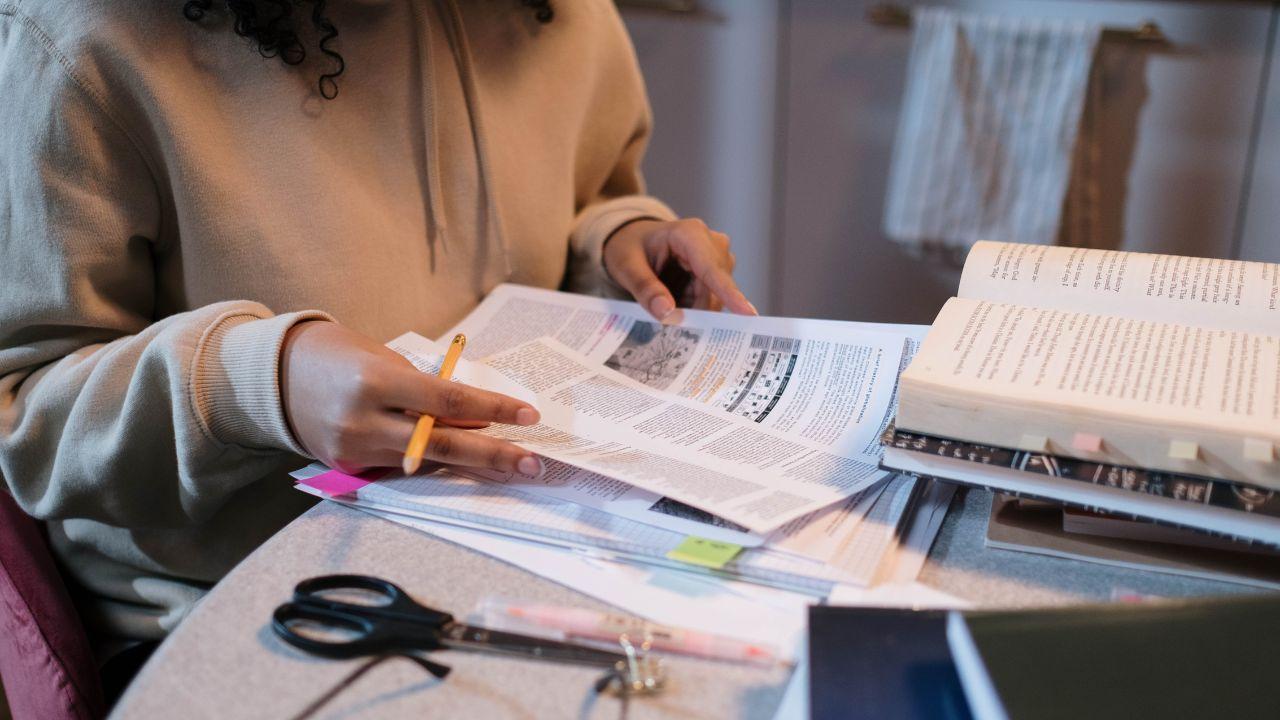
Post by : Vansh
In today’s rapidly changing educational landscape, a long-standing question continues to stir debate among educators, parents, and students alike: Are traditional exams the best way to measure learning? For decades, standardized testing has been the cornerstone of evaluating academic success. However, a growing movement is challenging this notion by introducing alternative assessments—diverse, flexible, and student-centered methods that could reshape how we define educational achievement.
Traditional exams have long been associated with measuring a student's ability to retain and regurgitate information. These tests often assess memorization rather than true comprehension, creativity, or critical thinking. While exams can provide a snapshot of what a student knows at a given time, they rarely reflect the full scope of a learner’s skills, personality, or potential.
Moreover, the pressure of high-stakes testing can lead to anxiety, burnout, and even disengagement from learning. In many cases, talented students struggle under exam conditions, not because they lack understanding, but because they don't perform well in timed, high-pressure settings. This raises the question: are we accurately measuring success, or simply rewarding those who can thrive within a specific system?
Alternative assessments refer to a wide range of evaluation tools that go beyond traditional pen-and-paper exams. These include project-based learning, portfolios, oral presentations, peer assessments, self-reflections, and experiential learning. Unlike standard exams, these methods prioritize how a student thinks, solves problems, and applies knowledge in real-life contexts.
For example, instead of asking students to write an essay under timed conditions, an alternative assessment might have them create a multimedia project or deliver a live presentation. This shift allows educators to evaluate a broader range of competencies, from communication and collaboration to innovation and emotional intelligence.
One of the most widely adopted forms of alternative assessment is project-based learning (PBL). In this approach, students work on real-world problems over a period of time, often integrating multiple subjects and skills. Whether it's designing a sustainable city model, conducting a scientific experiment, or curating a history exhibit, PBL empowers students to take ownership of their learning.
This model encourages deeper understanding, critical analysis, and hands-on engagement—elements that are often missing from standardized tests. By assessing students on their process, teamwork, and final output, PBL offers a holistic view of student capabilities.
Another powerful alternative is the use of student portfolios. These curated collections of work provide a chronological record of a student’s progress, showcasing their best projects, revisions, reflections, and even failures. Portfolios give educators and parents insights into not just what a student has learned, but how they’ve evolved as a learner.
Unlike exams, which assess a single moment in time, portfolios reflect continuous development. They encourage students to engage in self-assessment, take pride in their work, and view learning as an ongoing journey rather than a one-time event.
Implementing alternative assessments offers a host of benefits. First and foremost, they foster deeper learning. When students are required to think critically, collaborate, and solve complex problems, they move beyond rote memorization and develop skills that are applicable in real life.
Second, these methods are inclusive and equitable. They accommodate different learning styles and provide multiple pathways for students to demonstrate their knowledge. Whether a learner excels in writing, speaking, visual design, or hands-on creation, there’s an assessment format that can highlight their strengths.
Third, alternative assessments help build essential 21st-century skills such as adaptability, creativity, problem-solving, and resilience. These skills are increasingly valued by employers and essential in a world that demands lifelong learning and innovation.
While the shift toward alternative assessments is promising, it’s not without challenges. One major concern is consistency. Unlike standardized exams, which are easy to grade objectively, alternative assessments often require subjective judgment. This calls for clear rubrics, teacher training, and sometimes more time for evaluation.
Additionally, implementing new assessment methods can require curriculum redesign, technology integration, and a shift in school culture. For some educators and institutions, the transition may seem daunting. However, when thoughtfully planned and executed, the long-term benefits far outweigh the initial hurdles.
Countries across the world are beginning to experiment with alternatives to traditional exams. Finland, widely known for its top-performing education system, places minimal emphasis on standardized testing and instead uses continuous assessment throughout a student’s schooling. Similarly, in parts of the United States, Canada, and the United Kingdom, educators are piloting portfolio-based graduation models and performance tasks.
Even universities are taking note. Some higher education institutions now accept portfolios in place of SAT or ACT scores, recognizing that academic potential can't always be measured by test results alone.
The ultimate goal of education is not to produce test-takers but to cultivate thinkers, innovators, and responsible global citizens. By rethinking exams and embracing alternative assessments, we move closer to an education system that values depth over speed, creativity over conformity, and potential over performance.
Success, then, becomes less about scoring high on a test and more about growing into a well-rounded, capable, and curious individual. As this evolution continues, both students and teachers are given the freedom to reimagine what it truly means to succeed.
The content in this article is intended for informational and educational purposes only. The views and opinions expressed do not necessarily reflect the official policy or position of any educational institution or authority. Readers are encouraged to consult with academic professionals or education experts for specific guidance. This article is published by MiddleEastBulletin news network.










Pageau's Overtime Goal Propels Islanders to 4-3 Victory Over Golden Knights
In a thrilling overtime finish, Jean-Gabriel Pageau leads the Islanders past the Golden Knights 4-3,

MLB Awards: deGrom and Acuna Jr. Shine as Comeback Players
Jacob deGrom and Ronald Acuna Jr. celebrated MLB Comeback Player Awards, alongside Ohtani and Judge

Portugal Confronts Ireland in Pivotal World Cup Qualifier
Portugal, led by Cristiano Ronaldo, faces Ireland in a vital Group F World Cup qualifier that could

Haaland's Brilliance Leads Norway to 4-1 Victory Against Estonia
Erling Haaland showcases leadership as Norway crushes Estonia 4-1, boosting their World Cup ambition

Hawks Triumph Over Jazz; Suns and Raptors Secure Victories
Hawks' Onyeka Okongwu and Jalen Johnson lead in a thrilling win against Jazz; Suns and Raptors also

Indian Men's Recurve Team Clinches First Asian Gold in Nearly Two Decades
The Indian men's recurve team triumphed over South Korea, securing their first Asian gold in 18 year